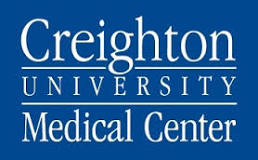B-type Natriuretic Peptide as a Surrogate Marker Guiding Post-operative Fluid Off-loading
| Status: | Completed |
|---|---|
| Healthy: | No |
| Age Range: | 19 - Any |
| Updated: | 4/21/2016 |
| Start Date: | July 2012 |
| End Date: | June 2013 |
B-type Natriuretic Peptide (BNP) as a Surrogate Marker Guiding Post-operative Fluid Off-loading
The long-range goal of this proposal is to decrease morbidity and mortality related to
pulmonary edema and congestive heart failure (CHF) in post-operative patients. The
short-range goal is to determine a mechanistic endpoint when therapy for impending heart
failure can be initiated and terminated based on B-type natriuretic peptide (BNP) levels.
The investigators propose to utilize changing levels of BNP as a surrogate marker for CHF.
pulmonary edema and congestive heart failure (CHF) in post-operative patients. The
short-range goal is to determine a mechanistic endpoint when therapy for impending heart
failure can be initiated and terminated based on B-type natriuretic peptide (BNP) levels.
The investigators propose to utilize changing levels of BNP as a surrogate marker for CHF.
Creighton University Medical Center is 334-bed Level I Trauma Center that hosts a wide
variety of surgical and trauma patients. Many of these patients, including and especially
those with pre-existing cardiac morbidities, develop symptoms of congestive heart failure
(CHF) following trauma or surgical intervention because of a combination of physiological
factors including third spacing followed by self-diuresis, and decreased contractility post
injury. Normally, following the onset of CHF, surgeons begin treatment based on their
clinical judgment of hemodynamic parameters and radiographic findings. CHF is known to
increase morbidity, mortality, hospital length of stay and overall expenditure to the health
care system and preventative measures and directed treatment modalities have potential to
improve patient care and healthcare economics.
BNP, also known as beta-natriuretic protein or CHF peptide, is a cardiac neuro-hormone
synthesized by the cardiac myocytes. It is released as a preproBNP peptide of 134 amino
acids and is cleaved into proBNP (108 amino acids) and a signal peptide of 26 amino acids.
ProBNP is subsequently cleaved into BNP (32 amino acids) and the inactive N-terminal proBNP
peptide (NBNP; 76 amino acids). The effects of BNP are vasodilation, natriuresis and
diuresis1.
Left ventricular end-diastolic wall stress (EDWS) measurement and ejection fraction are well
established surrogates to predict the onset of CHF but require the invasive procedure of
cardiac catheterization.
The mainstay of the treatment of CHF is diuretic drugs to try to remove excess fluid from
the patient. In this project we plan to identify patients at risk for CHF and divide them
into two groups. In one group BNP will be used to guide diuretic dosage and in the other
conventional clinical parameters will be used.
variety of surgical and trauma patients. Many of these patients, including and especially
those with pre-existing cardiac morbidities, develop symptoms of congestive heart failure
(CHF) following trauma or surgical intervention because of a combination of physiological
factors including third spacing followed by self-diuresis, and decreased contractility post
injury. Normally, following the onset of CHF, surgeons begin treatment based on their
clinical judgment of hemodynamic parameters and radiographic findings. CHF is known to
increase morbidity, mortality, hospital length of stay and overall expenditure to the health
care system and preventative measures and directed treatment modalities have potential to
improve patient care and healthcare economics.
BNP, also known as beta-natriuretic protein or CHF peptide, is a cardiac neuro-hormone
synthesized by the cardiac myocytes. It is released as a preproBNP peptide of 134 amino
acids and is cleaved into proBNP (108 amino acids) and a signal peptide of 26 amino acids.
ProBNP is subsequently cleaved into BNP (32 amino acids) and the inactive N-terminal proBNP
peptide (NBNP; 76 amino acids). The effects of BNP are vasodilation, natriuresis and
diuresis1.
Left ventricular end-diastolic wall stress (EDWS) measurement and ejection fraction are well
established surrogates to predict the onset of CHF but require the invasive procedure of
cardiac catheterization.
The mainstay of the treatment of CHF is diuretic drugs to try to remove excess fluid from
the patient. In this project we plan to identify patients at risk for CHF and divide them
into two groups. In one group BNP will be used to guide diuretic dosage and in the other
conventional clinical parameters will be used.
Inclusion Criteria:
- General Surgery patients with history of coronary artery disease, congestive heart
failure, pulmonary hypertension
- Cardiac surgery patients undergoing CABG (coronary artery bypass grafting) and valve
replacements
Exclusion Criteria:
1. Recent myocardial infarction (within 3 months).
2. ASA class 4 and more.
3. Emergency surgeries.
We found this trial at
1
site
Creighton University Medical Center St. Joseph's Mercy Hospital was founded on September 25, 1870 at...
Click here to add this to my saved trials
